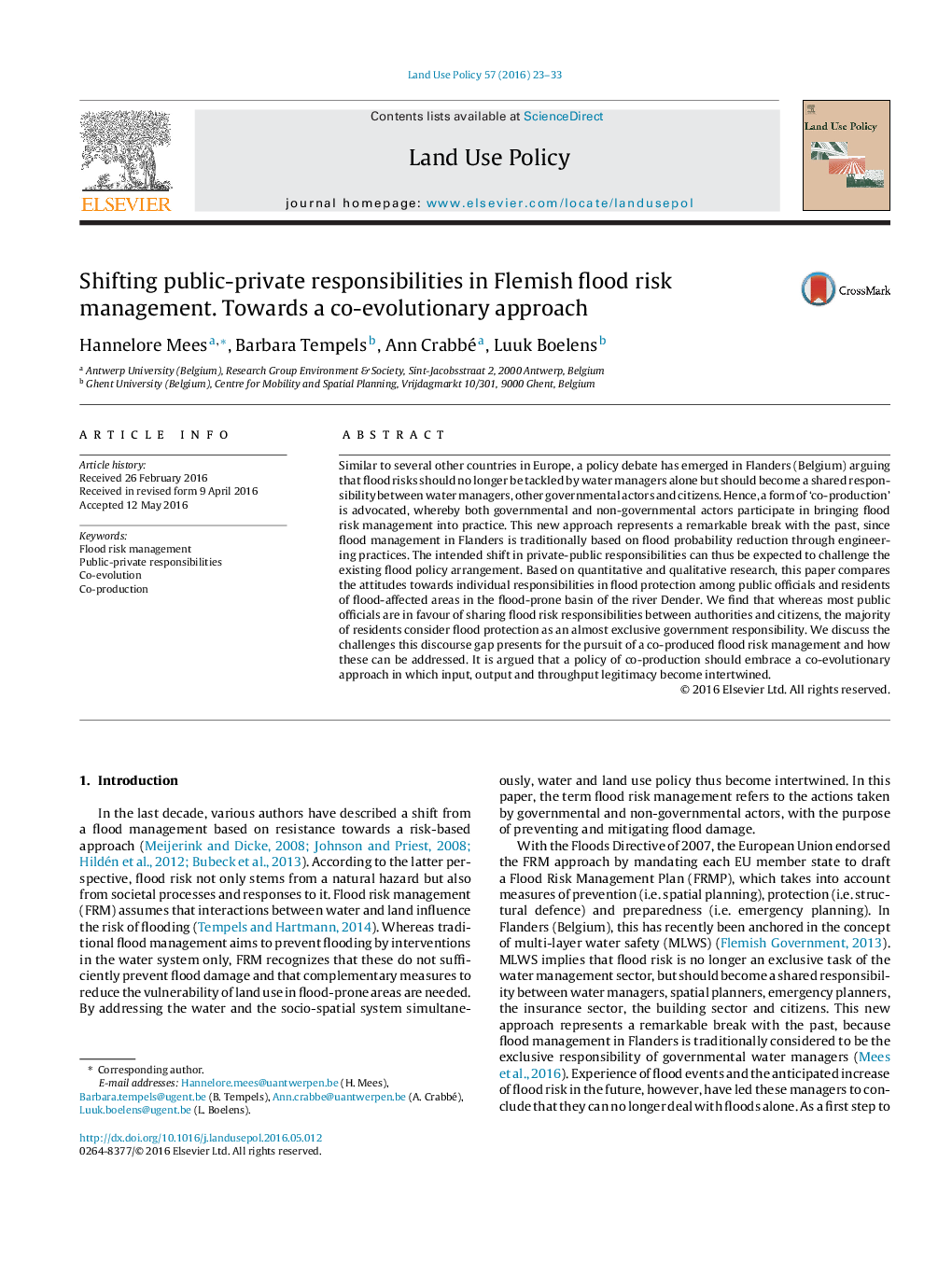| Article ID | Journal | Published Year | Pages | File Type |
|---|---|---|---|---|
| 6546961 | Land Use Policy | 2016 | 11 Pages |
Abstract
Similar to several other countries in Europe, a policy debate has emerged in Flanders (Belgium) arguing that flood risks should no longer be tackled by water managers alone but should become a shared responsibility between water managers, other governmental actors and citizens. Hence, a form of 'co-production' is advocated, whereby both governmental and non-governmental actors participate in bringing flood risk management into practice. This new approach represents a remarkable break with the past, since flood management in Flanders is traditionally based on flood probability reduction through engineering practices. The intended shift in private-public responsibilities can thus be expected to challenge the existing flood policy arrangement. Based on quantitative and qualitative research, this paper compares the attitudes towards individual responsibilities in flood protection among public officials and residents of flood-affected areas in the flood-prone basin of the river Dender. We find that whereas most public officials are in favour of sharing flood risk responsibilities between authorities and citizens, the majority of residents consider flood protection as an almost exclusive government responsibility. We discuss the challenges this discourse gap presents for the pursuit of a co-produced flood risk management and how these can be addressed. It is argued that a policy of co-production should embrace a co-evolutionary approach in which input, output and throughput legitimacy become intertwined.
Related Topics
Life Sciences
Agricultural and Biological Sciences
Forestry
Authors
Hannelore Mees, Barbara Tempels, Ann Crabbé, Luuk Boelens,
